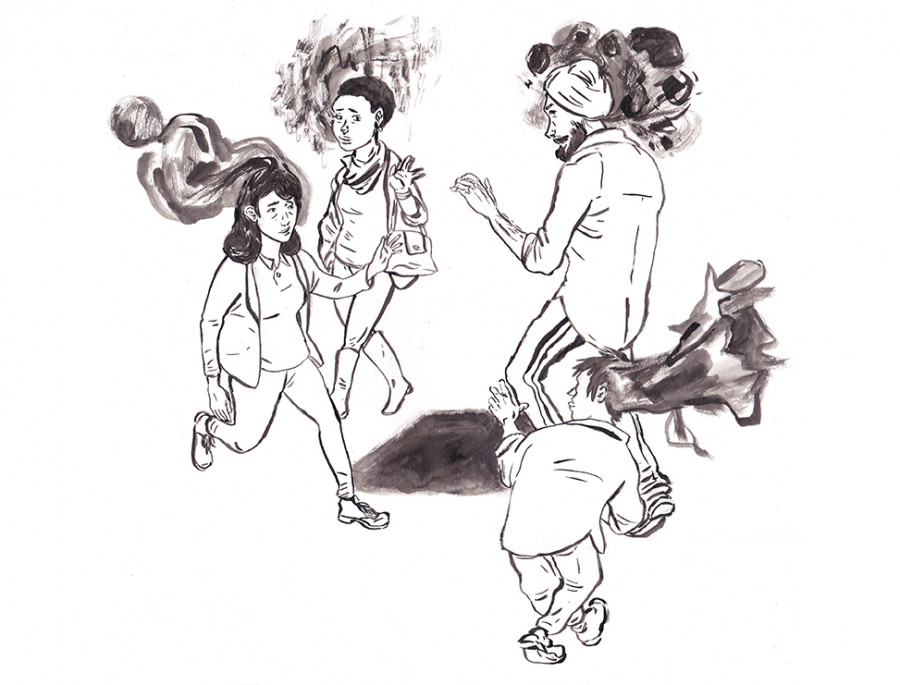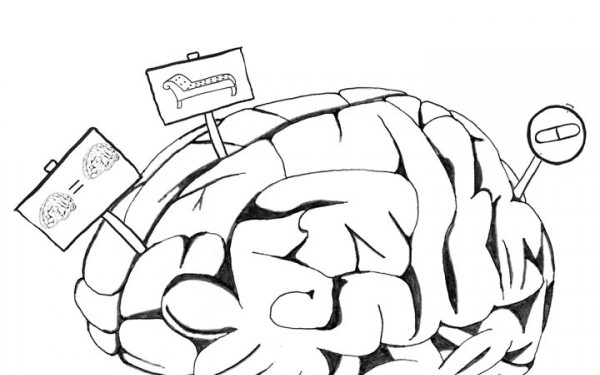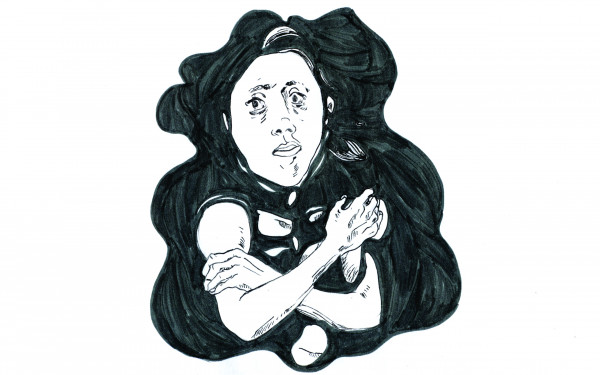I’m Not Fine
New Concordia Program Addresses Mental Illness in a Digital Space
All Mental Health content is available on our Special Issue Microsite. Works best on Chrome or Firefox.
“Hey, how’s it going?”
“Fine, thanks. You?”
It’s the type of conversation that happens every day at home, work or on campus—but is it genuine?
Nampande Londe is trying to give fellow students a place to express how they’re feeling without fear of judgement. The centrepiece of her project, titled Not Fine, is a moderated web forum where users can share their experiences. If all goes to plan, the site will go online next month.
Londe says inspiration for Not Fine came from her own struggle with anxiety and depression. Instead of being open about her feelings, she kept them bottled up.
“I never used to talk about it because you have this idea that everyone is fine because they’re all going around saying ‘I’m fine, I’m fine,’” she said.
“But really, they’re probably not fine either. You’re both probably about to have a breakdown, so we want to break through that silence.”
When Londe presented the idea for her project in her classes, she was overwhelmed with messages of support and offers to volunteer.
“I was surprised when I started talking about mental health issues how many people said, ‘I know exactly what you’re talking about, I’ve gone through that,’” she said.
“That’s what makes me think we might just be scratching the surface.”
Users will be able to post to Not Fine’s forum anonymously without having to provide proof of diagnosis or any other medical details.
“We don’t want people to have to fit what they’re going through [into] a biomedical model,” Londe explained.
She envisions the site as similar to the McGill Microaggressions Tumblr which encourages students, staff and professors to share their experiences of sexism, heteropatriarchy, transphobia, classism, racism and ableism.
Londe hopes the site will act as a bridge connecting students in need of help with local resources, including Counselling and Development, the Gender Advocacy Centre and Suicide Action Montréal.
Anna Frey, a volunteer for Not Fine, says the project will fill a gap in the support services offered at the university.
“There is no space where students can immediately connect with one another, from the comfort of their own homes, to talk about their mental health,” she said. “We want to create a community so people know that though they may be feeling very alone, there are others who are experiencing similar things.”
As non-professionals, the Not Fine team understands that it lacks the training to deal with suicide intervention or other difficult situations, so it’s reaching out to mental health experts for advice.
In addition to the site, Not Fine’s volunteers are thinking about forming a support group and handing out care packages of tea and cookies to students during exam periods. They applied for $2,500 in funding from the CSU special projects fund, the Office of the Dean of Students, and the Concordia Council on Student Life to get the ball rolling.
The Concordia Student Union showed its support for Not Fine by inviting Londe to speak at the last council meeting on Feb. 13.
“I think it hits on something that’s very true of your university experience,” said CSU President Melissa Kate Wheeler. “The more we talk about these kinds of issues the more people will feel supported.”
Last year, Wheeler started a similar project called Love Doesn’t Hurt, a campaign to raise awareness about abusive relationships and support victims.
Once they get the project off the ground, Not Fine’s volunteers want to help train frosh leaders and offer help to students as early as their first week of university.
“We want to let people know from the get-go that university is going to be hard emotionally, so here are some things that can help,” Londe said.
Not Fine is looking for volunteers. If you’re interested, email nlonde@live.ca for more information.






